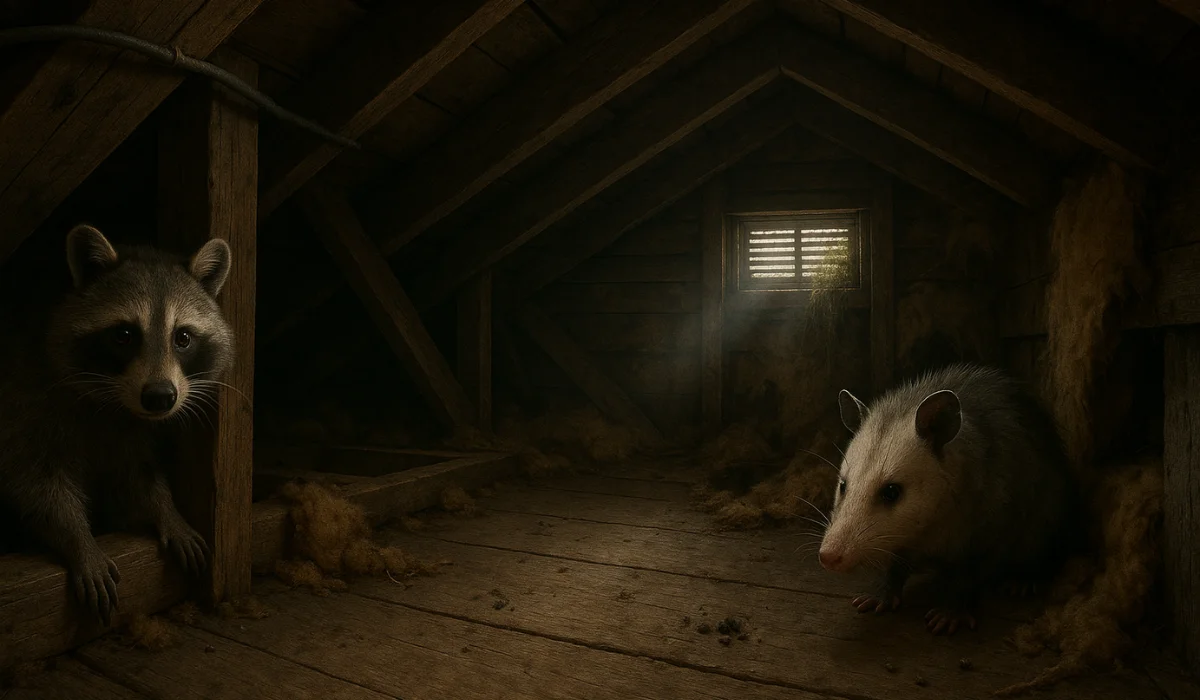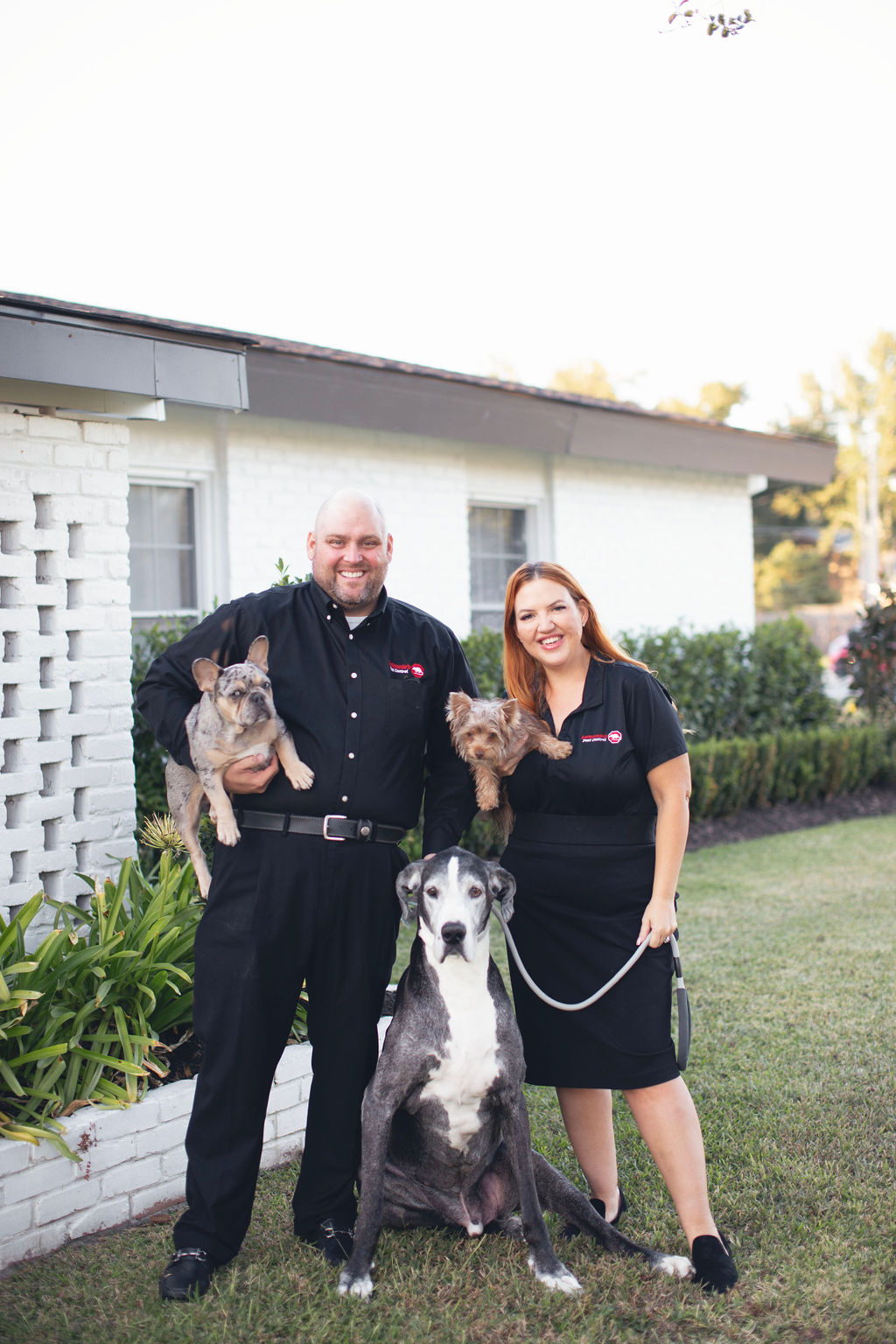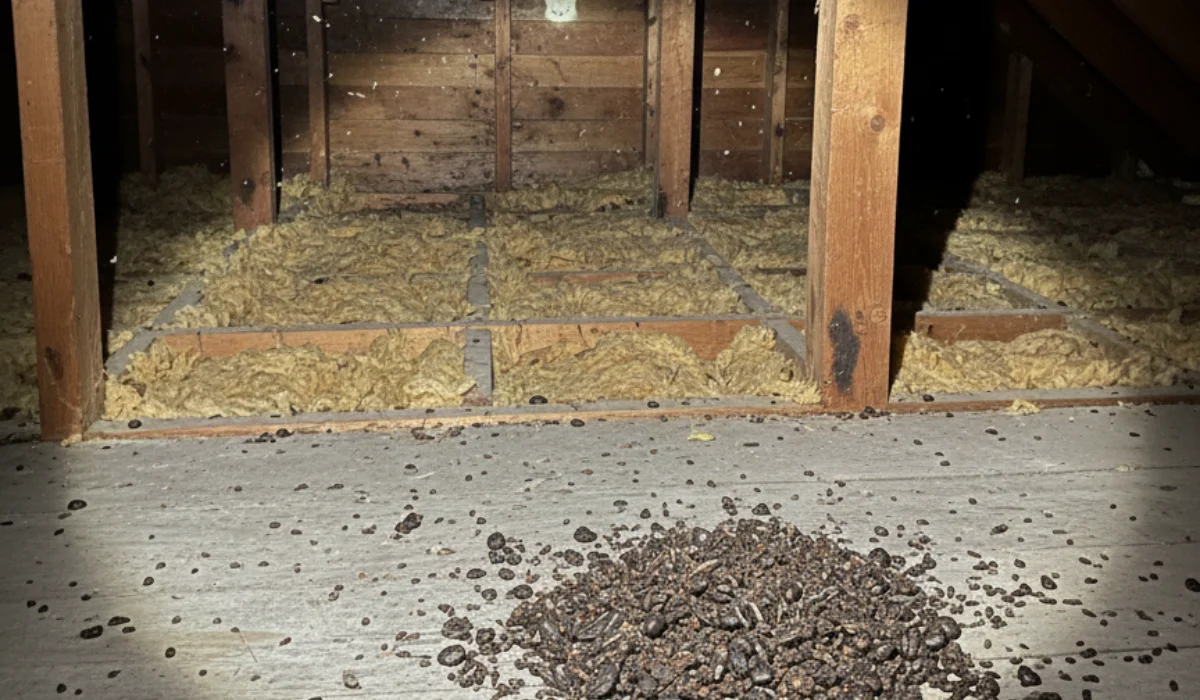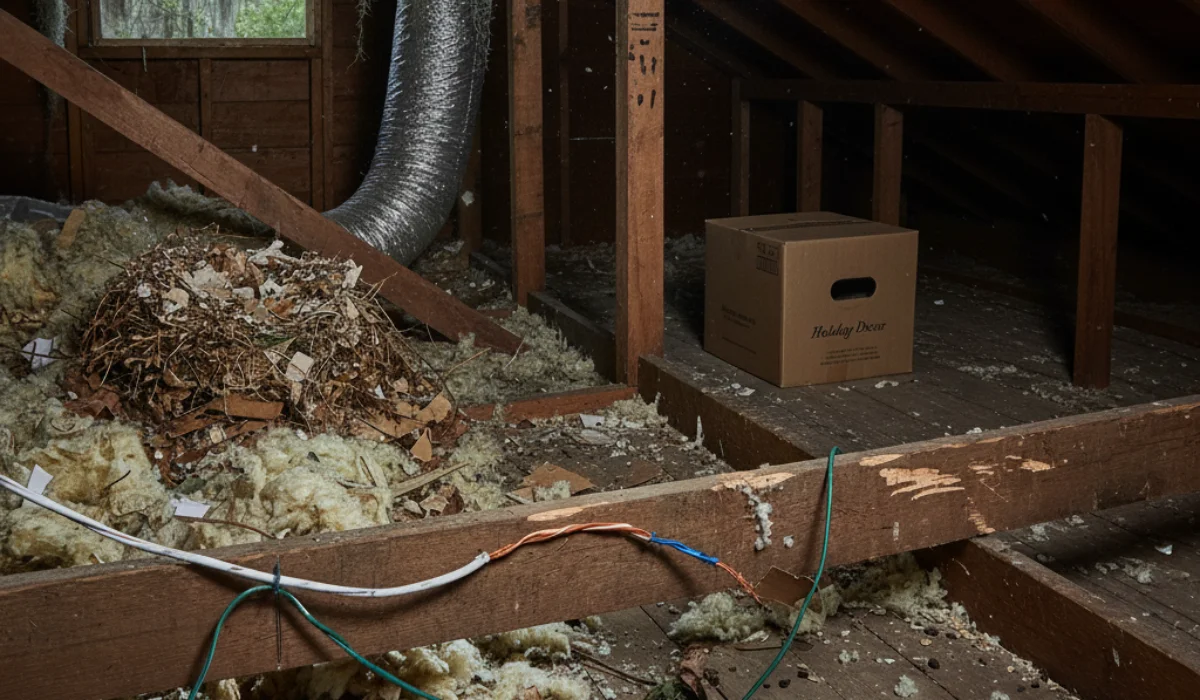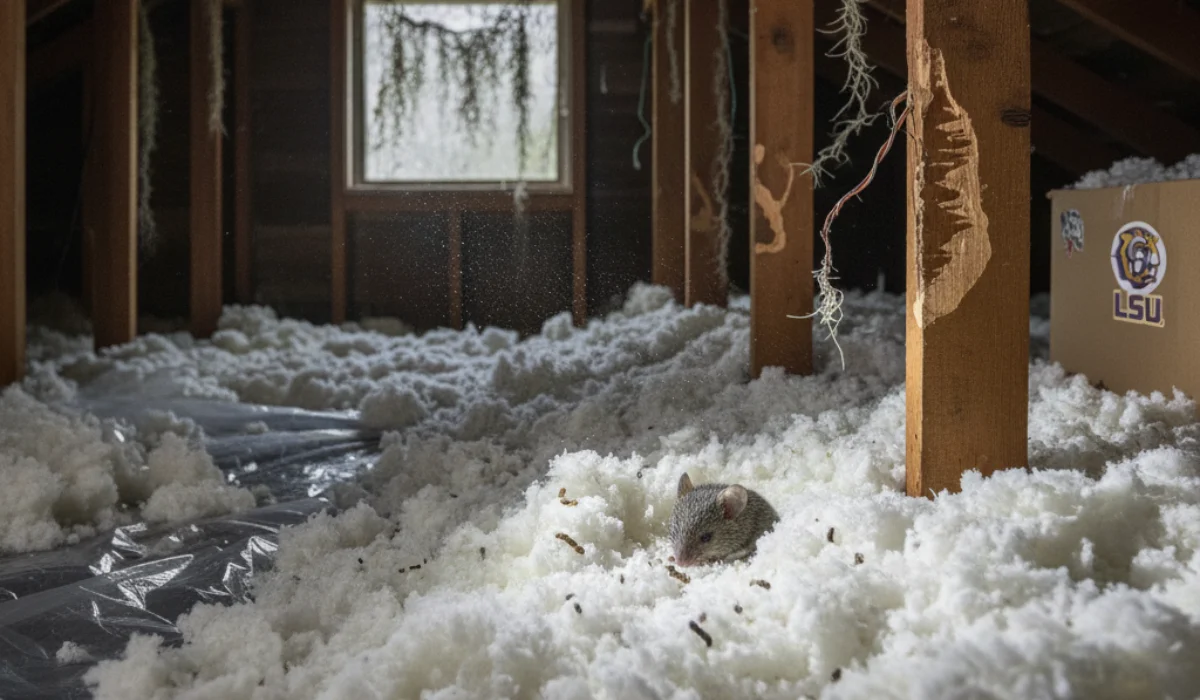If you hear thumps, scratches, or scurrying in your attic at night, you may wonder what critter moved in. In Houma, the most common attic intruders are raccoons and opossums. They may look alike, but their habits, risks, and signs are different.
Knowing which animal you have helps you predict damage and fix the problem. For Houma and southeast Louisiana homeowners, this knowledge can save time, money, and stress.
At LaJaunie’s Pest Control, we receive many Houma calls from families unsure whether a raccoon or an opossum is in their attic. Below are the key differences, what to expect, and when to call a professional.
Key Takeaways
• Raccoons cause more damage to homes and often raid trash cans.
• Opossums, North America’s only marsupial, cause less harm and may “play dead.”
• Both animals pose health risks, so safe removal is crucial.
• Professional pest control utilizes humane methods and establishes long-term prevention measures in Houma homes.
Signs of Raccoons vs Opossums in Houma Attics
In Houma attics, people often notice raccoons first because they are louder. Raccoons make heavy steps and audible scratches, while opossums move more slowly. Raccoons usually leave tipped trash cans, scattered food, and shredded insulation. Their droppings are larger and can carry roundworms.
Opossums leave smaller droppings. If one dies in a wall or attic, you may smell a strong odor. If you see the animal, you will notice that a raccoon’s tail has rings. An opossum’s tail is bare and can grip. Opossums have a white face, dark eyes, and a pointed nose. A flashlight makes them easy to spot.
Key Differences Between Raccoons and Opossums
Their primary differences are evident in their behavior and biology. Raccoons, often referred to as “trash pandas,” are skilled climbers and may pry open vents or shingles to access attics. They also pick unusual resting spots, which explains where raccoons hide during the day. Opossums act as opportunists and enter through gaps already in the home.
Opossums are marsupials. Mothers carry their young in a pouch, and a single opossum can indicate the presence of nearby babies. In the wild, raccoons may live up to five years, while opossums usually survive only one to two years. Raccoons are also more likely to return to the same den site, which is why sealing entry points is so important.
They also defend themselves differently. Raccoons may fight if cornered. Opossums often “play dead” and release a foul smell. Opossums tend to be less aggressive, but both animals can bite if handled.
Health Concerns for Homeowners
Even if you prefer opossums, both animals can pose risks. The Centers for Disease Control (CDC) reports that raccoons can carry rabies. Their droppings may spread parasites that can harm people and pets.
Opossums rarely spread rabies, but they can carry fleas, ticks, and other parasites that can be transmitted to humans. They help reduce the risk of Lyme disease by eating ticks. They also eat slugs and small animals, such as rodents. That helps outdoors, but not in an attic.
In Houma, people often run into these animals. Knowing how to remove raccoons in Louisiana safely helps protect your family, and professional pest control services handle the job with humane methods.
Why Raccoons Cause More Damage
In Houma, raccoons usually cause more damage than opossums. Raccoons can tear shingles, soffits, and ductwork. They may chew wires, which raises fire risk. Once inside, they can crush insulation and leave contaminated droppings. It helps to know how raccoons break into your attic so you can spot weak points before they do.
Opossums usually cause less damage. The biggest issue is when one dies in a hard-to-reach spot, which causes a strong odor. Still, any attic intruder can harm your home if you wait.
How To Prevent Wildlife in Your Attic
You can reduce the chance of raccoons or opossums nesting in your attic by sealing entry points and securing your trash cans with tight lids. Raccoons in Louisiana hunt for food waste, so a loose trash can is an invitation for them to come. Opossums also wander into yards for scraps.
Keep trees trimmed back from the roof to limit access for climbing. Inspect soffits, vents, and chimneys often to make sure they stay in good condition. Some of the best tips for keeping raccoons away from your property include simple steps, such as sealing gaps and securing trash cans.
Many homeowners don’t realize that raccoons will return to the same attic in Louisiana if they leave openings unsealed, which makes exclusion just as important as removal. If you hear scratching now, call a local pest control team before the problem grows.
Making the Right Choice for Wildlife Control in Houma
When a critter moves into your attic, it disrupts your home and can lead to lasting problems if not handled quickly. One visit can prevent damage from getting worse and keep your family safe. Wildlife issues are trending in Houma as more neighborhoods expand into wooded areas.
At LaJaunie’s Pest Control, we provide professional wildlife control across Louisiana. Our team locates entry points, uses humane trapping methods, and provides sanitation services to restore attics.
Contact us today to schedule service and protect your home from raccoons, opossums, or other attic wildlife.
FAQs
Are raccoons or opossums more common in Houma attics?
Raccoons appear more frequently because they often break into attics. Opossums use gaps that already exist. Both are common in Houma.
Do opossums carry rabies?
Opossums rarely carry rabies, but they can spread fleas and other parasites. Raccoons are more likely to have rabies.
How do I know if I need pest control for wildlife in my attic?
If you hear noises at night, see droppings, or notice damage around vents and soffits, it’s time to call for pest control. A professional inspection confirms whether you have raccoons, opossums, or another animal inside.
 By: LaJaunie's Pest Control
By: LaJaunie's Pest Control 